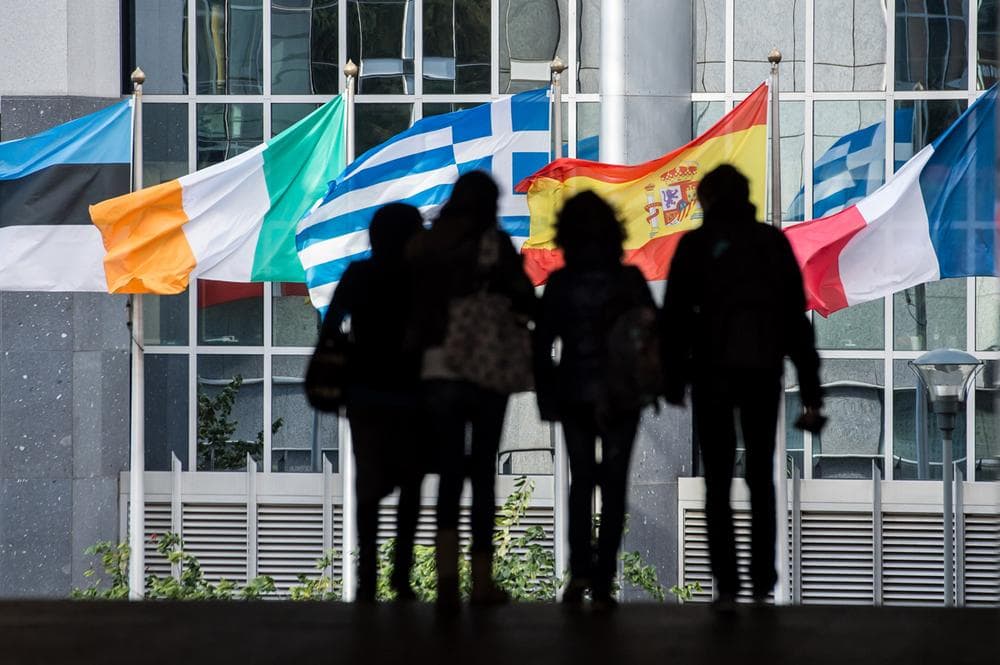Advertisement
EU Austerity Measures: Why The Nobel Peace Prize Matters
In receiving the Nobel Peace Prize, the leaders of the European Union should not only take a moment to feel justifiable pride in the recognition of the EU’s past accomplishments, but they should also take a moment to reflect on what they’re doing today in the midst of the Eurozone crisis that may undermine that very achievement.
The Nobel Committee gave the award based on the Union’s contributions to peace, human rights and democracy. Since the 1950s the economic, political and cultural integration of Europe has made inter-state war unthinkable. The suggestion that Germany could go to war with France, Britain or Greece would extract from no more than a good laugh from today’s average European. Other dangerous tensions, such as those between Romania and Hungary, are now relegated to the history books; and this too is in large part due to European integration.
[sidebar title="" width="300" align="right"] This piece was co-written by Vivien Schmidt, professor of international relations and political science, and founding director of the Center for the Study of Europe at Boston University.[/sidebar]
This piece was co-written by Vivien Schmidt, professor of international relations and political science, and founding director of the Center for the Study of Europe at Boston University.[/sidebar]
There is also much to be proud of in the institutional capitals of the EU (Brussels, Strasbourg) with regard to human rights standards. It is hard to imagine that citizens whose basic human rights were curtailed by their domestic courts would have a better deal today if it were not for EU interventions. The fact that the EU’s was able to pull this off across borders is unprecedented and should be acknowledged as such.
But the awarding of the Nobel Prize should also make Europeans pause and reflect on the EU’s increasing failure to defend its high standards during the greatest economic crisis in the union’s history — as a warning that its disregard of the political fallout from its economic policies may be weakening Europe’s peace, human rights and democratic defenses.
What’s particularly worrying is that the EU has handled the economic crisis in ways that have begun to raise darker specters.
EU leaders’ single-minded focus on this agenda of fiscal consolidation has engendered the replacement of prime ministers in Italy and Greece, and made the popular vote largely irrelevant when it comes to how national governments decide what to do with the taxpayers’ money. European citizens, who see their employment and access to medical care dramatically reduced by EU-coordinated austerity, cannot be blamed for feeling alienated from EU leaders making decisions behind closed doors.
What’s particularly worrying is that the EU has handled the economic crisis in ways that have begun to raise darker specters. In Spain and Greece, where austerity has produced unprecedented levels of unemployment, especially among the young, trust in institutions has collapsed and now people challenge even the basic terms of democracy. When massive citizen protests can no longer change state agendas, one has to wonder what happened to popular sovereignty. Adding insult to injury, the extreme police violence against protesters from Bucharest to Madrid has been shocking. The preventive arrest of protest organizers was the hallmark of authoritarian regimes, not of Spain, which was the model of a successful transition from authoritarianism to democracy more than three decades ago.

But perhaps of even greater concern is that the EU’s economic policies can trigger levels of domestic conflict that were unthinkable a few years ago. Consider the risk of secession, with all the attendant security risks. Catalan regionalism has always been an important feature of Spanish politics but not anymore. The austerity demanded by the EU put pressure on the central government in Madrid to squeeze the wealthier region of Catalonia, where a strong sense of political and cultural autonomy is now being converted into demands for independence. In Greece, the unprecedented cuts in expenditures, the economic collapse and the sense of national humiliation that ensued facilitated the emergence of Golden Dawn, a far-right party with neo-Nazi ideology and practices. It is now common for Greek police to refer victims of crime to Golden Dawn militias.
The prize should be a reminder that the dangers so recently overcome can reappear.
These are hardly markers of a vibrant democracy and the EU has to contemplate its responsibility in this regard. The Nobel Committee was very much aware of these issues when it made its award, and the prize should be a reminder that the dangers so recently overcome can reappear. EU leaders need to take a page from the past, with another leap of the imagination, beyond the economics of austerity to a new politics of solidarity, backstopped by deeper political as well as economic integration.
The list of Nobel awards has produced many disappointments. Let’s hope that the EU will take this moment as an invitation to be the engine of more democracy and the guarantor of the peace not only between states, but within them as well.
This program aired on October 18, 2012. The audio for this program is not available.